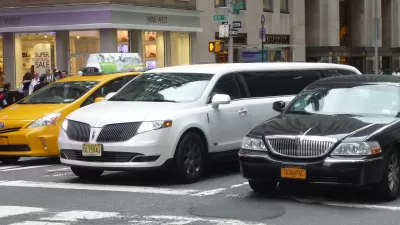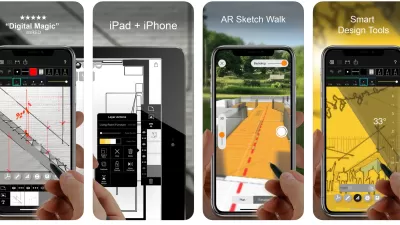Ted Mann explores the new wave of mobile applications changing the way cabs and their customers interact, which could make the act of physically hailing a cab obsolete in as soon as five years.
From Hailo to Get Taxi, a number of promising applications are lining up to get regulatory approval to start connecting taxis to customers in New York and other American cities. As Mann explains, "The apps all work slightly differently, but in general they allow
smartphone users to see where available cabs are, alert drivers that
they need a ride, and store credit-card or debit-card information so
they can pay for the trip without exchanging money or swiping a card."
Unfortunately, in many cities, outdated regulations written long before the rise of smartphones must be revised to allow a handful of tasks that would allow the apps to be fully functional.
"'Technology is moving at lightning speed,' and the regulatory process is
not, says Matthew Daus, a former New York City taxi commissioner whose
law firm, Windels Marx Lane & Mittendorf LLP, is advising regulators
about new technologies. 'We're at a regulatory fork in the road,' Mr.
Daus adds. The crafting of new rules 'has the opportunity to be the
greatest potential achievement if it's done right,' he says. 'Or it
could be the biggest disaster ever' if it fails to let the industry
benefit fully from the latest technologies."
FULL STORY: Taxi! Taxi! Oh, Never Mind. I'll Use My Smartphone.

Planetizen Federal Action Tracker
A weekly monitor of how Trump’s orders and actions are impacting planners and planning in America.

Maui's Vacation Rental Debate Turns Ugly
Verbal attacks, misinformation campaigns and fistfights plague a high-stakes debate to convert thousands of vacation rentals into long-term housing.

San Francisco Suspends Traffic Calming Amidst Record Deaths
Citing “a challenging fiscal landscape,” the city will cease the program on the heels of 42 traffic deaths, including 24 pedestrians.

Amtrak Rolls Out New Orleans to Alabama “Mardi Gras” Train
The new service will operate morning and evening departures between Mobile and New Orleans.

The Subversive Car-Free Guide to Trump's Great American Road Trip
Car-free ways to access Chicagoland’s best tourist attractions.

San Antonio and Austin are Fusing Into one Massive Megaregion
The region spanning the two central Texas cities is growing fast, posing challenges for local infrastructure and water supplies.
Urban Design for Planners 1: Software Tools
This six-course series explores essential urban design concepts using open source software and equips planners with the tools they need to participate fully in the urban design process.
Planning for Universal Design
Learn the tools for implementing Universal Design in planning regulations.
Heyer Gruel & Associates PA
JM Goldson LLC
Custer County Colorado
City of Camden Redevelopment Agency
City of Astoria
Transportation Research & Education Center (TREC) at Portland State University
Jefferson Parish Government
Camden Redevelopment Agency
City of Claremont





























